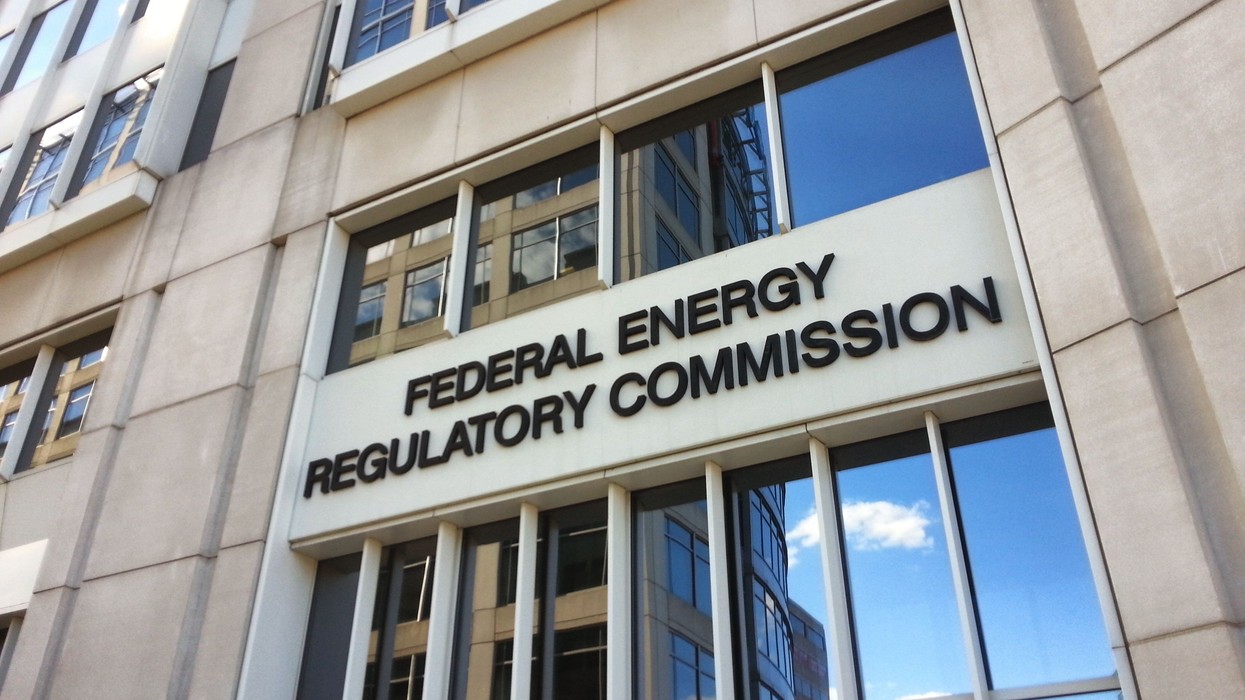The DOE Finally Admits That LNG Isn’t a Get-Out-of-Climate-Crisis Free Card
A new report and statement won’t necessarily bind anything, but they do something almost as important: Finally a Democratic administration has been straightforward and honest about natural gas.
Late Monday afternoonPolitico, and then The New York Times, reported that the Department of Energy is ready to release the report of it’s nearly year-long study on LNG exports—a study mandated by a large-scale campaign (that very much included this newsletter) which persuaded U.S. President Joe Biden to halt new permits for new terminals along the Gulf of Mexico.
The report, and the equally important statement that came with it, won’t necessarily bind anything—it may complicate somewhat the Trump administration’s plans to approve new export terminals, but probably not fatally. But it does something almost as important. Finally a Democratic administration has been straightforward and honest about natural gas. That may actually matter, both in the short and long-term.
The continued growth of gas exports was “neither sustainable nor advisable,” Granholm said.
The background here is that, ever since the onset of fracking in the ‘oughts, Democrats have embraced the surge in natural gas. The GOP was still in love with coal, but climate change concerns were making that uncomfortable for anyone this side of Joe Manchin (D-Flammable Black Rocks). Along came the sudden surge in natural gas, which allowed the Obama administration both a path toward reviving the post-financial-crisis economy, and a way to cut carbon emissions. If you doubt me, read almost any of former President Barack Obama’s State of the Union addresses, which each contain a paragraph-long paean to the fracking boom.
In 2013, for instance, he enthused:
We produce more natural gas than ever before—and nearly everyone’s energy bill is lower because of it. And over the last four years, our emissions of the dangerous carbon pollution that threatens our planet have actually fallen…
The natural gas boom has led to cleaner power and greater energy independence. We need to encourage that. And that’s why my administration will keep cutting red tape and speeding up new oil and gas permits.
The shift from coal to gas-fired power plants, which was basically the sum of Obama’s climate policy, dropped carbon emissions, something he (and the fossil fuel industry) boasted about endlessly. But the problem was physics: As Cornell professor Bob Howarth started noisily pointing out, carbon dioxide isn’t the only greenhouse gas. CH4, or methane, traps heat even more effectively, and Howarth and others insisted it was escaping into the atmosphere from fracking fields and pipelines in large enough quantity to cancel out the progress on carbon.
They won the scientific battle—study after study has now demonstrated that indeed leak rates are very high. But the political struggle was much harder: No one wanted to give up the idea that there was a pain-free way out of the climate dilemma.
There was so much natural gas in the Permian Basin that America couldn’t soak it up, and in the Trump years we started to export it—that quickly grew to the point where America was the largest source of gas in the world. Both the Biden and Trump administrations approved one export terminal after another, over the outcry of local residents along the Louisiana and Texas coasts who had to deal with these monstrosities. It finally reached the point where environmentalists had to make a stand, and that’s what happened in the fall of 2023—after another Howarth study, this one demonstrating that so much methane leaked from the giant LNG carriers that it was worse than exporting coal.
Hence the pause, and hence the angry outcry from the oil industry (which worked harder than ever to elect a Republican in November), and hence today’s report. The language is truly strong: Energy Secretary Jennifer Granholm, in her letter that accompanies the report, stresses that it would be bad news for American consumers who still depend on gas (supply and demand being what it is). But the more important part is what she says about natural gas and climate. According to the Times, she says that any few facilities should face “rigorous question”
“especially in a world that needs to quickly reduce greenhouse gas emissions.” Under a scenario in which more than the current level of gas exports was approved, the report finds that the additional emissions would be 1.5 gigatons per year by 2050. That’s about a quarter of annual emissions generated by the United States, the world’s second-biggest polluter.
The fossil fuel industry always insists that LNG exports will replace coal, but crucially Granholm and the report made clear that’s not true.
She noted that the study found increased LNG exports would displace more wind, solar, and other renewable energy than coal. The study modeled five scenarios, and in every one, global greenhouse gases were projected to rise, even when researchers assumed aggressive use of technologies to capture and store carbon emissions.
This, in turn, sends a signal to Malaysia and Vietnam and the other Asian countries that would be the main recipients of gas from new terminals. I am guardedly hopeful that the year’s delay—which allowed solar and windpower to drop in price and gain in momentum—may be enough to convince those nations that they don’t want to sign up for 40 years of dependency on imported gas. I sure hope so, in part because of the heroes that led this fight—people like Roishetta Ozane who are defending not just the whole planet but their particular part of it.
The continued growth of gas exports was “neither sustainable nor advisable,” Granholm said. That’s the closest that prominent American politicians have come to telling the truth about the most important component of the climate crisis. If Vice President Kamala Harris had won the election, this might have meant a real sea change. In our current reality it’s at least honest, and honesty is a lot better than its opposite.


